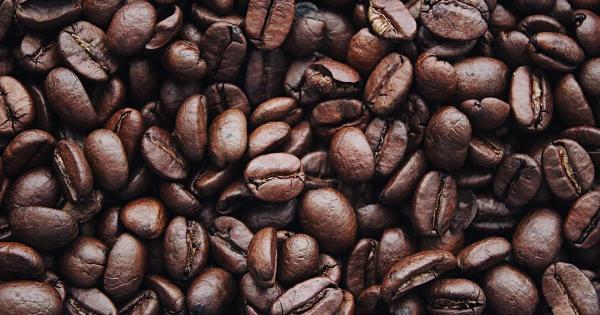Caffeine is a natural stimulant found in various foods and beverages, such as coffee, tea, chocolate, and energy drinks.
It is consumed by millions of people around the world to help them stay awake, boost their energy levels, and enhance their performance. While a moderate intake of caffeine is generally considered safe for most individuals, excessive consumption can lead to various health problems and even poisoning.
How Does Caffeine Affect the Body?
When consumed, caffeine is rapidly absorbed into the bloodstream. It stimulates the central nervous system, causing increased alertness and reduced fatigue.
Caffeine blocks the action of adenosine, a neurotransmitter that promotes sleep and relaxation, and it also triggers the release of other neurotransmitters like dopamine and norepinephrine, which contribute to increased mental and physical activity.
Caffeine affects various organs and systems in the body, including the brain, heart, muscles, and gastrointestinal tract. It stimulates the release of adrenaline, leading to an increase in heart rate and blood pressure.
This can be beneficial in certain situations but can also pose risks, especially for individuals with existing heart conditions or high blood pressure.
Recommended Caffeine Intake
The recommended daily caffeine intake varies depending on individual factors such as age, sensitivity, and overall health. Generally, a moderate intake of caffeine is considered safe in healthy adults.
The FDA recommends a maximum daily intake of 400 milligrams of caffeine, which is roughly equivalent to four cups of coffee.
It’s important to note that caffeine sensitivity can vary greatly among individuals. Some people may experience adverse effects from even small amounts of caffeine, while others may be able to handle larger doses without any issues.
The Dangers of Excessive Caffeine Consumption
Excessive caffeine consumption can lead to various health problems and even caffeine poisoning, also known as caffeine overdose. Symptoms of caffeine poisoning can include:.
- Rapid or irregular heartbeat
- High blood pressure
- Restlessness and nervousness
- Agitation and irritability
- Tremors and muscle twitching
- Nausea and vomiting
- Difficulty sleeping
- Headaches
In severe cases, caffeine poisoning can even lead to seizures, hallucinations, and cardiac arrest.
The Risks for Certain Groups
While excessive caffeine consumption can be risky for anyone, certain groups may be more vulnerable to its adverse effects.
Pregnant women should be particularly cautious about their caffeine intake. High levels of caffeine have been associated with an increased risk of miscarriage, preterm birth, and low birth weight.
It’s recommended that pregnant women limit their caffeine intake to 200 milligrams per day.
Individuals with underlying health conditions, such as heart problems, high blood pressure, anxiety disorders, or sleep disorders, should also be mindful of their caffeine consumption.
Caffeine can exacerbate these conditions and lead to serious complications.
Recognizing and Managing Caffeine Addiction
Caffeine is mildly addictive, and individuals who consume excessive amounts of caffeine on a regular basis may develop a dependence on it. Caffeine withdrawal symptoms can include fatigue, headaches, irritability, and difficulty concentrating.
To manage and reduce caffeine addiction, gradual withdrawal is recommended. Cutting back on caffeine intake slowly can help minimize withdrawal symptoms.
It’s important to replace caffeinated beverages with healthier alternatives such as herbal teas or decaffeinated options.
Healthy Caffeine Alternatives
If you’re looking to reduce your caffeine intake or eliminate it altogether, there are plenty of healthy alternatives to consider. Some options include:.
- Herbal teas: Herbal teas are naturally caffeine-free and offer a wide range of flavors and health benefits. Options such as chamomile, peppermint, and ginger can be soothing and calming.
- Decaffeinated beverages: Many coffee and tea varieties offer decaffeinated options, allowing you to enjoy the taste without the stimulating effects of caffeine.
- Natural fruit juices: Freshly squeezed fruit juices can provide a natural energy boost without relying on caffeine.
- Water: Staying hydrated with plain water is essential for overall health and can help combat fatigue and increase energy levels.
Conclusion
While caffeine can have its benefits, excessive consumption can lead to poisoning and various health risks. It’s important to be mindful of your caffeine intake and consider the potential effects on your health.
If you suspect that you’re consuming too much caffeine or experiencing adverse effects, it’s advisable to consult a healthcare professional for guidance and support.






























